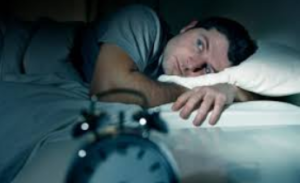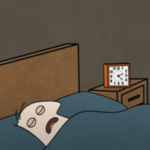
If you have insomnia, healthy sleep habits can make a big difference.
These general guidelines are recommended for everyone, but they are especially
important for people who can’t fall asleep or stay asleep on a regular basis.
Try to keep the following sleep practices on a consistent basis:
-Stick to the same bedtime and wake up time, even on the weekends.
This helps to regulate your body’s clock and could help you fall asleep and
stay asleep for the night.
This can be hard if you’re tired and want to sleep
in on the weekends, but for many people it helps to set an alarm and wake
up at the same time every day.
– Avoid naps, especially in the afternoon.
A power nap may help you get through the day, but if you find that you
can’t fall asleep at bedtime, eliminating even short catnaps may help.
– Exercise, but not close to bedtime.
Exercising can help regulate your body and make you sleep better, but
working out too close to bedtime can activate you and make it harder to
settle into sleep.
– Evaluate your room.
Make sure you have a clean, comfortable, quiet, and dark sleep space.
Use a sound machine or a fan to block noise from inside or outside the
house, and install darkening blinds for streetlights and morning light.
– Avoid alcohol, cigarettes, and heavy meals in the evening.
Alcohol and cigarettes can disrupt sleep, and eating big or spicy meals can
cause discomfort that can make it hard to sleep.
– Wind down.
Your body needs time to shift into sleep mode, so spend the last hour
before bed doing a calming activity such as reading.
For some people, using an electronic device such as a laptop can make it hard to fall asleep,
because the particular type of light emanating from the screens of these
devices is activating to the brain.
If you have trouble sleeping, avoid electronics before bed or if you wake up in the middle of the night.






